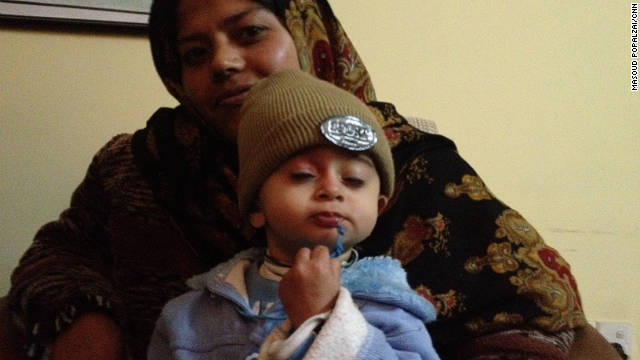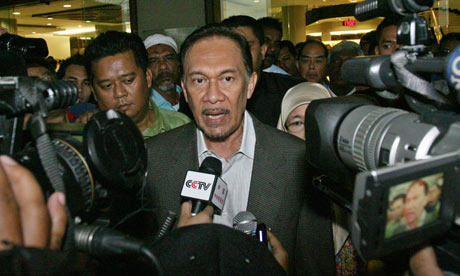
Gulnaz, freed from jail, was sentenced to 12 years in prison for adultery after a relative raped her two years ago
Kabul, Afghanistan (CNN) -- An Afghan woman imprisoned for adultery after a relative raped her has been freed after President Hamid Karzai intervened on her behalf.
The woman, identified only as Gulnaz for her own protection, had been sentenced to prison for 12 years after she reported that her cousin's husband had raped her two years ago. Wednesday, she was free at a women's shelter in Kabul, with her daughter.
Her plight gained international attention when the European Union blocked the broadcast of a documentary about her ordeal, saying it would further jeopardize her safety.
Afghan Justice Minister Habibullah Ghaleb and a judiciary committee both proposed a pardon. Karzai then ordered authorities to decree Gulnaz's release.
After the attack two years ago, Gulnaz hid what happened as long as she could. She was afraid of reprisals. But soon she began vomiting in the mornings and showing signs of pregnancy. It was her attacker's child.
In Afghanistan, this brought her not sympathy but prosecution. She was found guilty by the courts of sex outside of marriage -- adultery -- and sentenced to 12 years in jail. She was only 19.
As shocking as it may seem, Gulnaz's case is far from isolated.
Last month, CNN asked a spokesman for the prosecutor to comment on the case. The reply was that there were hundreds of such cases, and the office would need time to look into it.
Reported cases of violence against women, from domestic abuse to rape to honor killings, are on the rise, according to the Afghan Women's Network.
One problem is that Afghan law fails to clearly distinguish between rape and adultery, which is a crime under Shariah, or Islamic law. The courts say Gulnaz was to blame for having sex with a married man.
Interview with Gulnaz
In conservative Afghan society, Gulnaz faces considerable pressure to marry her attacker, soothing the rift between the two families, restoring her honor and legitimizing her daughter.
She was willing to do so in order to end her incarceration, she told CNN last month from Kabul's Badam Bagh jail, though she does not want that option. She would like to marry an educated man, according to U.S. attorney Kimberly Motley in Kabul.
Gulnaz's choices now are stark. Women in her situation are often killed for the shame their ordeal has brought the community.
A United Nations human rights document on Afghan women said "women are perceived as receptacles of family honor, their opposition to family dictates about marriage often puts them at risk of brutal physical punishment. So-called 'honor' killings recognize a man's right to kill a woman with impunity because of the damage that her immoral actions have caused to family honor."
Gulnaz could still be at risk from her attacker's family.
From jail, Gulnaz's convicted rapist denied raping her. Her life would probably end if she ever made it out of jail, he said. But it would be her family, not his, that would kill her out of the shame she has wrought.
How Gulnaz will be able to re-assimilate into the life she once had remains a difficult question. She is free from jail but not from her ordeal.

 Speaking
about his arrest on Dec 13, 2007, along with four others, M Manoharan
said Indians, particularly the youth, have realised that each individual
has a role to play in highlighting the community’s plight.
Speaking
about his arrest on Dec 13, 2007, along with four others, M Manoharan
said Indians, particularly the youth, have realised that each individual
has a role to play in highlighting the community’s plight. His victory was due to the unprecedented number of volunteers and Hindraf supporters who campaigned for him.
His victory was due to the unprecedented number of volunteers and Hindraf supporters who campaigned for him. “They
were with us all the way. They walked with us, carried us, went on
fasts for us and prayed for us. Now it is my turn to give back as a
state assemblyperson,” he said.
“They
were with us all the way. They walked with us, carried us, went on
fasts for us and prayed for us. Now it is my turn to give back as a
state assemblyperson,” he said.







 “And also against racism in the 60 percent towkay (Chinese capitalist)-controlled corporate, banking, industrial and private sectors,” said Uthayakumar (left) in a statement today.
“And also against racism in the 60 percent towkay (Chinese capitalist)-controlled corporate, banking, industrial and private sectors,” said Uthayakumar (left) in a statement today. The four are lawyers M Manoharan, R Kenghadharan (right), V Ganabatirau and businessman T Vasanthakumar.
The four are lawyers M Manoharan, R Kenghadharan (right), V Ganabatirau and businessman T Vasanthakumar. “Unlike
the other communities, we in the Human Rights Party and Hindraf have
never demanded any special privileges or supremacy. We are merely
fighting to stay ... above the waters and fighting not to be pushed
below the waters.
“Unlike
the other communities, we in the Human Rights Party and Hindraf have
never demanded any special privileges or supremacy. We are merely
fighting to stay ... above the waters and fighting not to be pushed
below the waters.
 KUALA
LUMPUR, Dec 13 — Datuk Seri Anwar Ibrahim today predicted that the
general election would be held soon after his sodomy trial ends, saying
that it was part of an elaborate plan to end his political career.
KUALA
LUMPUR, Dec 13 — Datuk Seri Anwar Ibrahim today predicted that the
general election would be held soon after his sodomy trial ends, saying
that it was part of an elaborate plan to end his political career.



